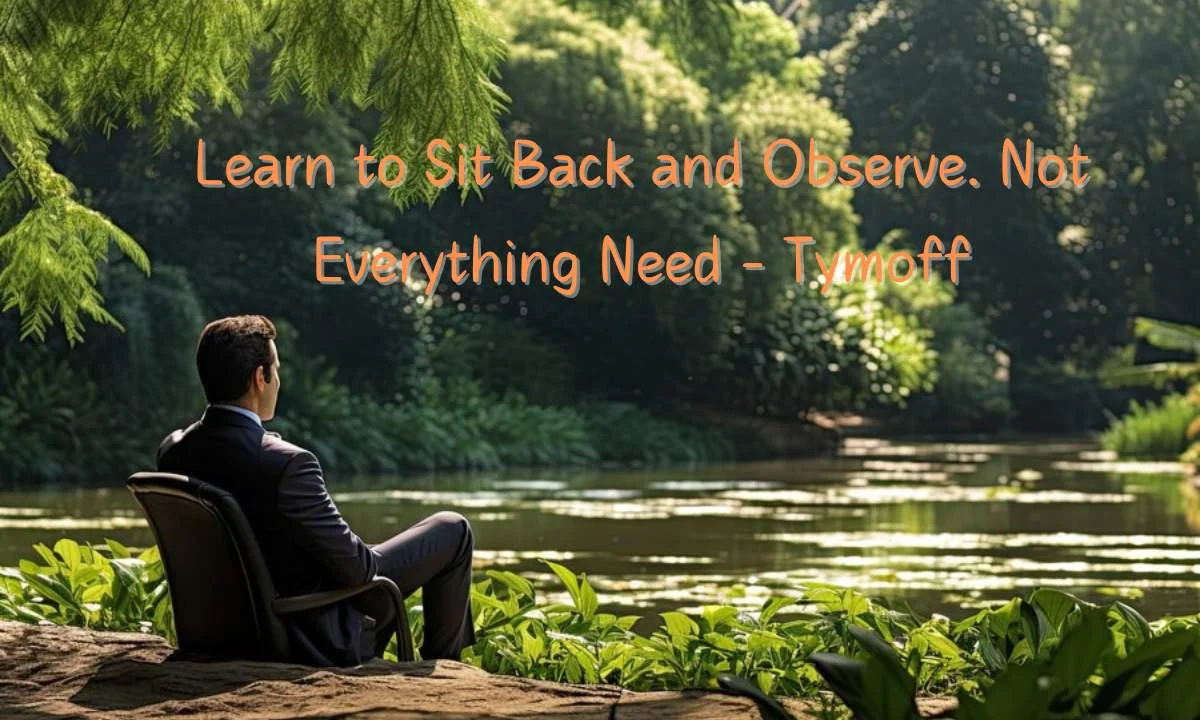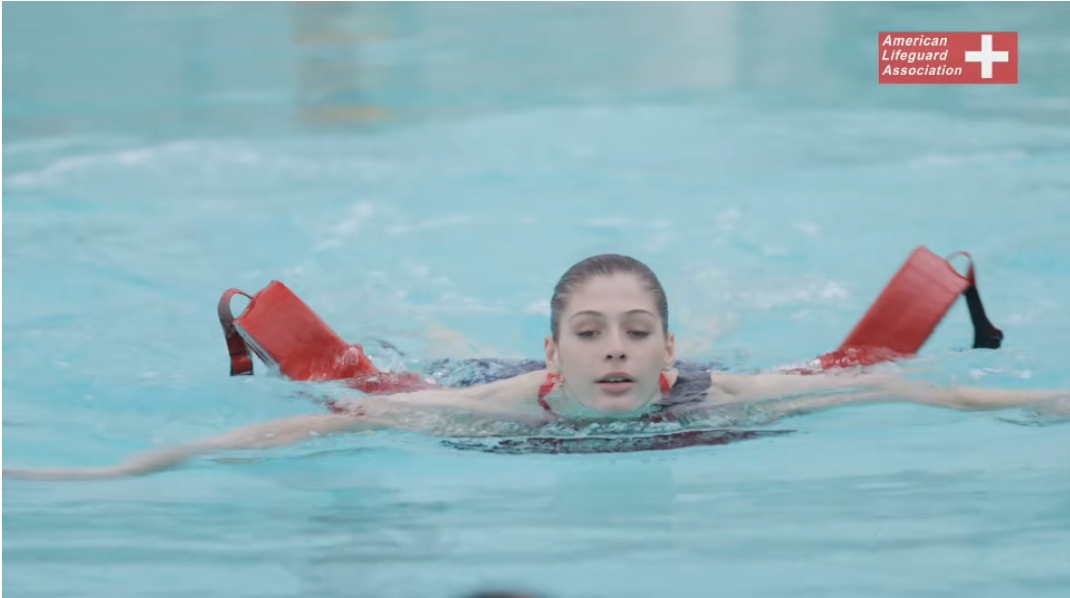In a world that thrives on constant motion and rapid responses, the art of stepping back to observe often gets overlooked. Tymoff’s profound perspective, “Learn to sit back and observe. Not everything needs action,” serves as a gentle reminder to embrace stillness and thoughtful contemplation. This principle not only promotes mental clarity but also helps us make better decisions in a chaotic, fast-paced environment.
The Value of Observation
Observation is a skill that requires attention and intention. To sit back and observe means to detach from immediate reactions and instead focus on understanding the situation at hand. It’s about allowing yourself the space to process information without the pressure to respond instantly.
This approach is rooted in mindfulness—a practice that encourages living in the present moment. By observing, we engage in deep listening and understanding, which leads to more thoughtful interactions and decisions. In many ways, observation is the foundation of wisdom, offering insights that impulsive actions cannot.
Why Not Everything Needs Action
The pressure to react to every situation can lead to emotional and mental exhaustion. In an era dominated by instant gratification and social media’s “always-on” culture, there’s a growing tendency to address every issue, respond to every comment, and fix every problem. However, this constant need for action often does more harm than good.
Pausing to observe allows us to discern what truly requires our energy and attention. Many situations resolve themselves or become clearer over time without intervention. For instance, not every disagreement needs to escalate into an argument. Sometimes, silence and observation can convey more wisdom than words.
Tymoff’s Perspective on Mindful Inaction
Tymoff’s quote encapsulates the essence of mindful inaction—a philosophy that encourages individuals to embrace patience and perspective. By choosing observation over reaction, we gain the ability to approach challenges with a calm and measured mindset.
This philosophy is especially relevant in high-stakes environments where impulsive decisions can have significant consequences. In personal relationships, for example, observing instead of reacting during conflicts fosters better understanding and resolution. Similarly, in professional settings, taking time to analyze situations leads to more effective solutions and minimizes errors.
Practical Ways to Cultivate Observation
To incorporate observation into your daily life, consider the following practices:
1. Practice Mindfulness: Mindfulness exercises, such as meditation or deep breathing, train the mind to stay present. These techniques enhance your ability to observe without judgment.
2. Pause Before Reacting: Before responding to any situation, take a moment to reflect. Ask yourself whether the situation truly requires action or if it’s better to wait and observe.
3. Keep a Journal: Writing down your thoughts and observations helps you process events without reacting impulsively. Journaling can also provide clarity and perspective over time.
4. Focus on Active Listening: Pay attention to what others are saying without planning your response. This approach fosters deeper connections and mutual understanding.
The Benefits of Sitting Back and Observing
The practice of observation offers numerous benefits that enhance both personal and professional life.
Improved Decision-Making: By taking time to observe, you gather more information, allowing for better-informed decisions. This reduces the likelihood of mistakes and regrets.
Emotional Regulation: Observing your emotions before reacting helps you avoid unnecessary conflicts and emotional outbursts. This leads to healthier relationships and a more balanced mental state.
Stronger Relationships: Active observation helps you understand others’ perspectives, fostering empathy and mutual respect. This improves communication and strengthens bonds.
Increased Clarity: Observation clears mental clutter, enabling you to focus on what truly matters. This clarity allows you to prioritize effectively and achieve your goals.
Challenges of Practicing Observation
While the benefits are undeniable, adopting a mindset of observation can be challenging. Impatience, societal expectations, and the fear of being perceived as passive can make it difficult to embrace stillness.
To overcome these challenges, remind yourself that observation is not inaction—it’s a deliberate choice to gather information and respond thoughtfully. Practice self-compassion and celebrate small victories as you develop this skill.
Applying Tymoff’s Wisdom in Everyday Life
Tymoff’s philosophy can be applied in various aspects of life, from personal growth to professional success. Here are some examples:
In Relationships: During conflicts, take a step back and observe your emotions and the other person’s perspective. This helps de-escalate tensions and promotes constructive dialogue.
At Work: When faced with challenges, resist the urge to react immediately. Instead, analyze the situation and gather relevant information before making decisions.
In Self-Reflection: Use observation to understand your own thought patterns and behaviors. This self-awareness fosters personal growth and resilience.
A Reminder for the Modern World
In a society that equates busyness with productivity, Tymoff’s message serves as a powerful reminder to slow down and embrace observation. By resisting the urge to act on every impulse, we create space for clarity, wisdom, and meaningful action.
As you navigate the complexities of modern life, remember that not everything requires your immediate attention. Sometimes, the best course of action is to sit back, observe, and trust the process. In doing so, you’ll discover a sense of peace and purpose that transcends the chaos of the moment.
Also Read This Blog: A Comprehensive Guide to iCryptoX: Features, Benefits, and How It Works
Conclusion
The art of observation is a timeless skill that offers profound benefits in a world that often prioritizes action over understanding. Tymoff’s quote, “Learn to sit back and observe. Not everything needs action,” challenges us to embrace patience, mindfulness, and thoughtful deliberation.
By incorporating this philosophy into your life, you’ll gain clarity, strengthen relationships, and make more informed decisions. Most importantly, you’ll learn to navigate life’s challenges with grace and wisdom, proving that sometimes, less truly is more.
FAQs
1. What does “Learn to sit back and observe” mean?
This phrase emphasizes the importance of taking a step back to understand situations thoroughly before reacting. It encourages mindfulness and thoughtful inaction rather than impulsive responses.
2. Why is observation more effective than immediate action?
Observation allows for a clearer understanding of the situation, leading to better decision-making and emotional control. Acting impulsively can often escalate conflicts or lead to unintended consequences.
3. How can I practice observation in my daily life?
You can practice observation by pausing before reacting, practicing mindfulness, journaling your thoughts, and focusing on active listening in conversations. These habits help you develop patience and awareness.
4. What are the benefits of sitting back and observing?
The benefits include improved decision-making, better emotional regulation, stronger relationships, and increased mental clarity. It helps reduce stress and fosters a more balanced approach to life.
5. Does observing mean avoiding action?
No, observing doesn’t mean avoiding action. It’s about taking time to assess whether action is necessary and responding thoughtfully when it is. It’s a deliberate and mindful approach to decision-making.




